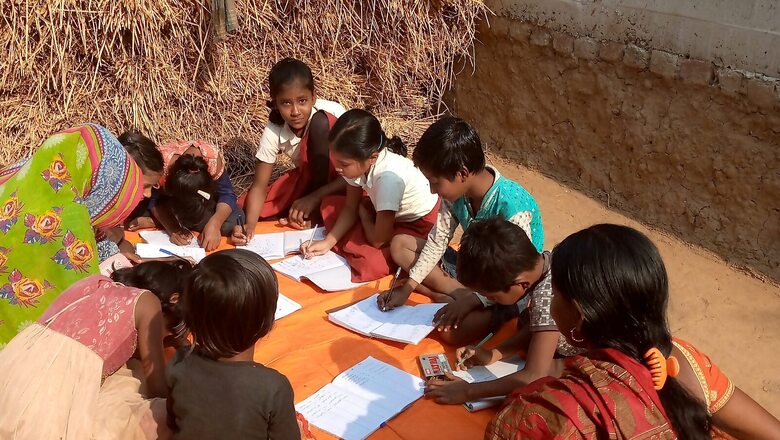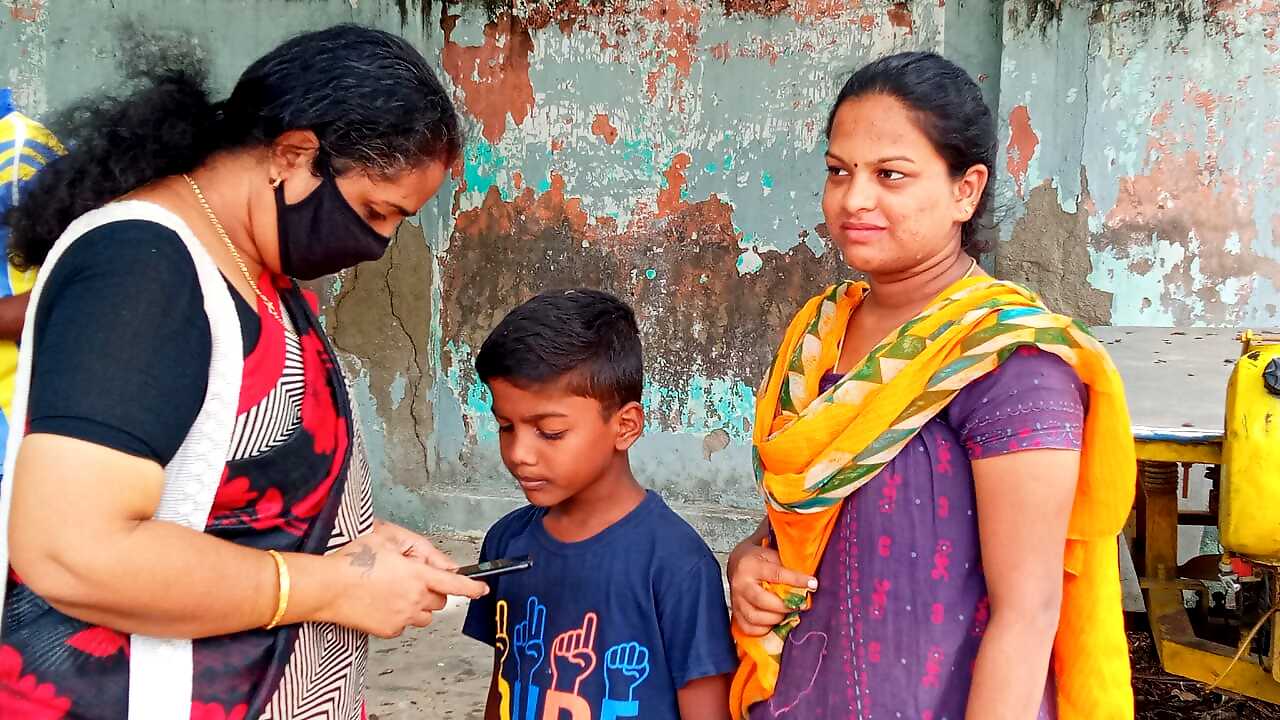
views
There is a strong call for governments to reopen schools. A large majority of parents who have experienced the devastating impact of the pandemic on health and livelihoods are acutely anxious about the future of their children abandoned by schools, now losing confidence and interest in studying. On the other hand, a small section of mostly urban parents who can afford online and other educational resources at home is concerned about children’s safety, and if the reopening means ‘business as usual’.
There have been some studies with a problematic focus on ‘learning loss’, placing the onus on the child for the state of her ‘learning’ and not the school or the system. Instead of stigmatising children for their ‘learning loss’, through a language of ‘deficit’, normally used for disadvantaged learners, it could be useful to start with the ‘real learnings’ that most have had.
Even in privileged environments, children were exposed to challenging and traumatic experiences, of life and death, loved ones gasping for breath, and families coping with debt. Many have suddenly grown up and some have assumed responsibilities beyond their age, to look after their elders, even to labour to support their families or pay for their own educational expenses. They have borne higher incidence of domestic violence, child marriage and trafficking, and learned to cope with isolation and the loss of friends and solidarity. Haven’t we all lost or gained, forgotten or learned much, through these unprecedented times? So how do we go ahead from here, taking special care of the most vulnerable of our children?
Learnings from Tamil Nadu & Jharkhand
Recent household surveys conducted in the states of Tamil Nadu and Jharkhand, by voluntary organisations involved with the Right to Education, namely the Tamil Nadu Science Forum and BGVS (Bharat Gyan Vigyan Samiti) respectively, give us insights into what is urgently needed. These have specially focused on the alarming reality of the majority of underprivileged children. Tamil Nadu is among the states with the highest educational provision and performance, while Jharkhand has poorer provision, with high teacher vacancies and large numbers of underserved tribal villages.
ALSO READ | 15 Kids Per Class, Hygiene Audits, Vaccinated Staff: How Schools Must Prepare to Reopen
Out of around 2,100 students in 200 villages across 35 districts of Tamil Nadu, nearly half have just about accessed the state government educational TV channel or online education. Moreover, 13 per cent have been involved in labour and, more worryingly, 11 per cent have not enrolled in the next class this year, indicating that these groups together amounting to 24 per cent of the sample are potential ‘push outs’. About two-third children had met teachers on some occasions, to get their textbooks or food rations instead of the mid day meal. In these villages, enrolment in government schools had increased by 5 per cent while it dropped by 7 per cent in private schools. A heartening observation was that 95 per cent of the children eagerly awaited reopening of schools.

A survey conducted in 200 villages of Tamil Nadu found that enrolment in government schools had increased by 5 per cent while it dropped by 7 per cent in private schools during the pandemic. Photo courtesy: Anita Rampal
In the first phase of the Jharkhand survey, initially supported by Jean Drèze, volunteers visited almost 2,000 underprivileged households (in 330 villages across 15 districts) and spoke to one child studying in the primary or upper primary school. About 80 per cent children were from government schools and others from private schools. The experiences of the children and parents were shocking.
Only about 10 per cent said they managed to access online classes, over 30 per cent said the teacher had never met them, while half said they had met a teacher only a couple of times since March 2020. Over 90 per cent parents were very keen for schools to reopen; they could see that children were forgetting what they had known earlier and were losing interest and confidence in their abilities to learn at school. It was observed that many schools were in an uncared and dismal condition owing to the long closure and lack of maintenance.
The Jharkhand survey is still continuing and the objectives are to understand the ground realities of vulnerable children, initiate dialogue with parents, teachers and local representatives, in order to advocate for schools to take responsibility and safely reopen at the earliest.
The Kalaburagi Model
A significant initiative to note is how government teachers in the Kalaburagi division of Karnataka showed exemplary commitment to continuing children’s education even during the lockdown, by safely running around 33,000 community schools or Vataare Shalas. Teachers collectively planned and conducted engaging activities and experiments, in open spaces, for 15-20 children in the 6-14 year age group. They provided reading materials and worksheets and also monitored their health and temperature where required. This was the result of a collaborative mechanism between teachers and administrators, with the active support of the Additional Commissioner of Public Instruction.
Learning from such government initiatives, all state governments must make a quick appraisal of the situation of schools in districts and blocks, to ensure immediate responsibility for necessary action. Special care and support through a network of persons and agencies is urgently required to bring back those forced into child labour. Those who have lost their parents during the pandemic need a special monthly scholarship and support.
ALSO READ | As Schools Begin to Unlock, Teachers Will be Frontline Warriors—But They Must be Trained
The priority of providing cooked food must be maintained instead of giving dry rations, even during periods of school closure. Most importantly, vaccination of teachers and school staff must be completed as part of the priority accorded to essential workers.
Keeping track of the spread of the disease in each block or district, primary and upper primary schools need to be safely reopened immediately. Advisories from public health experts have stated that younger children, even though capable of carrying the same viral load, are less susceptible to severe disease. Depending on the number of children and the spaces available in classrooms and schools, the decision could be to call them daily or on alternate days, to avoid crowding.
No Business as Usual
However, it cannot be business as usual, through what is called ‘remedial teaching’—which is demeaning as it assumes there is a deficit or malady in the child that is being remedied. Online classes have only deepened the digital divide and for the privileged it can, at best, provide some coaching, which is no substitute for education in any way.
Departing from the mechanical tendency to push teachers to ‘cover the syllabus’, we must instead orient them to ‘discover the child’, to learn with empathy what she has been through, learned and lost, and give time to make her feel she belongs here, with a network of friends who care. Those who have come from private schools need emotional care and attention after their experience of many losses—their friends and the family’s economic condition.
Teachers need to be motivated and fully supported, not replaced by retired personnel or community educators as is being suggested. Keeping children engaged in collective activities, not individual tasks, will bring back their confidence and help nurture their dreams and aspirations. It is well known that only such caring schools can create an environment of learning and belonging, for which children then wage major struggles on their own to resist being pushed out.
Anita Rampal is professor and former dean at the Faculty of Education, Delhi University. Views expressed are personal. The views expressed in this article are those of the author and do not represent the stand of this publication.
Read all the Latest News, Breaking News and Coronavirus News here.


















Comments
0 comment